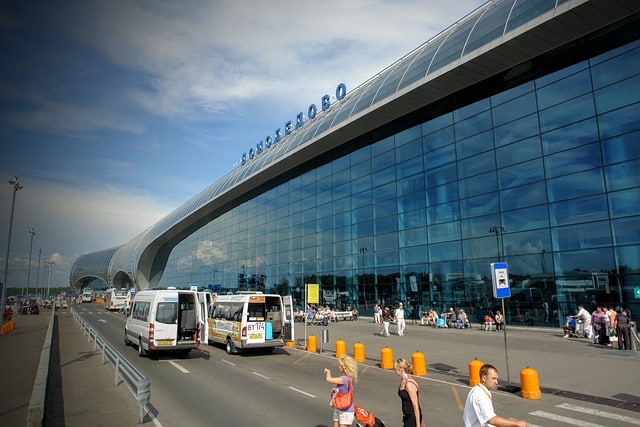A CMMS streamlines vendor relationship management by centralizing communication and documentation. It acts as a digital hub where airport authorities can maintain a detailed database of vendors, including contact information, service history, and contract details. This centralized repository ensures that all stakeholders have quick access to critical information, facilitating prompt responses to queries and issues.
Moreover, CMMS software automates workflow processes related to vendor management. It can generate automated notifications for contract renewals, service requests, and maintenance schedules, ensuring that airport facilities are always well-maintained and compliant with safety standards. By automating these tasks, airport staff can focus more on strategic vendor partnerships and improving service delivery.
Another significant benefit of CMMS in airport vendor management is its ability to track performance metrics. The system can capture and analyze key performance indicators (KPIs) such as vendor response times, service quality, and compliance with SLAs (Service Level Agreements). These insights enable airport authorities to make data-driven decisions, identify areas for improvement, and foster better vendor relationships based on measurable outcomes.
Furthermore, CMMS facilitates transparency and accountability in vendor interactions. Through real-time reporting and dashboards, stakeholders can monitor service delivery progress, track expenses, and ensure contractual obligations are met. This transparency builds trust between airports and vendors, fostering long-term partnerships that are essential for operational success.
In essence, a well-implemented CMMS transforms how airports manage their vendor relationships. By centralizing data, automating workflows, tracking performance, and enhancing transparency, CMMS empowers airport authorities to optimize vendor management processes, improve service quality, and ultimately enhance the passenger experience.
Streamlining Efficiency: How CMMS Revolutionizes Vendor Management at Airports
Imagine CMMS as the conductor of a symphony orchestra, harmonizing the diverse elements of vendor management with precision and finesse. It integrates vendor profiles, contracts, and performance metrics into a unified platform accessible to airport authorities and staff alike. This centralized approach eliminates the chaos of disparate systems and spreadsheets, allowing for real-time updates and data-driven decision-making.
At the heart of CMMS lies its ability to schedule and track maintenance tasks across the airport infrastructure. By automating routine inspections and repairs, CMMS reduces downtime and ensures that facilities remain in peak condition. This proactive maintenance approach not only enhances passenger safety and comfort but also extends the lifespan of critical assets, optimizing operational costs in the long run.
Moreover, CMMS facilitates seamless communication between airport management and vendors. It streamlines workflows, from initial service requests to final approvals, fostering a collaborative environment that prioritizes efficiency and accountability. Vendors benefit from clear guidelines and performance benchmarks, while airport authorities gain insights into vendor reliability and service quality through comprehensive analytics and reporting tools.
In essence, CMMS transforms vendor management at airports from reactive to proactive, from chaotic to organized. It empowers stakeholders to deliver exceptional service levels consistently, meeting the demands of modern air travel with agility and confidence. As airports continue to evolve into complex hubs of transportation and commerce, CMMS remains indispensable in optimizing efficiency and ensuring a seamless passenger experience.
Optimizing Airside Operations: The Role of CMMS in Vendor Relationship Management
Managing airside operations involves a complex web of activities, from runway maintenance to aircraft servicing. Within this intricate framework, effective Vendor Relationship Management (VRM) plays a pivotal role in ensuring seamless operations. One of the key tools facilitating this is Computerized Maintenance Management Systems (CMMS).
CMMS software serves as the backbone of efficient VRM by streamlining communication and coordination between airports and their vendors. It acts as a centralized platform where maintenance schedules, service requests, and vendor performance metrics are meticulously tracked and managed. By integrating VRM functionalities, CMMS enables airports to maintain stringent operational standards while fostering collaborative partnerships with vendors.
The real-time capabilities of CMMS allow airport authorities to monitor vendor activities closely, ensuring adherence to service level agreements and regulatory requirements. This proactive approach not only enhances operational efficiency but also minimizes downtime, thereby optimizing the overall airside performance.
Moreover, CMMS empowers airports to conduct thorough vendor evaluations based on historical performance data and analytics. This data-driven approach facilitates informed decision-making, enabling airports to select vendors that best align with their operational needs and standards of service excellence.
In essence, CMMS transforms vendor relationship management from a reactive process to a proactive strategy rooted in data-driven insights and streamlined workflows. By leveraging CMMS, airports can achieve cost efficiencies, improve service delivery, and maintain high safety standards across airside operations.
Cost-Effective Strategies: Leveraging CMMS for Airport Vendor Collaboration
Imagine this: an airport bustling with activity, from passengers rushing to catch flights to vendors supplying essential services. With so much going on, smooth collaboration between the airport management and vendors is crucial. Here’s where CMMS steps in like a seasoned conductor of a symphony orchestra, ensuring all parts work together harmoniously.
Cost-effective strategies are the name of the game here. CMMS software enables airports to schedule maintenance tasks efficiently, minimizing downtime and ensuring that vendors can operate at optimal levels. By integrating vendor management into the CMMS, airports can easily communicate work orders, track inventory, and maintain a unified database of vendor performance.
But it’s not just about logistics; it’s about fostering a collaborative environment where everyone—from janitorial services to retail vendors—can contribute to the airport’s smooth operation. Imagine a well-oiled machine where every cog and gear works in sync, thanks to timely updates, clear communication, and proactive maintenance scheduling.
Moreover, CMMS doesn’t just react to problems; it anticipates them. By analyzing data on equipment performance and vendor response times, airports can predict maintenance needs and plan accordingly. This proactive approach not only prevents costly breakdowns but also enhances the overall passenger experience by ensuring that airport facilities are always in top-notch condition.
Leveraging CMMS for airport vendor collaboration isn’t just a smart move; it’s a strategic investment in operational excellence. By optimizing workflows, minimizing downtime, and fostering collaboration, airports can achieve significant cost savings while delivering a seamless experience to travelers and vendors alike. Ready to take your airport operations to the next level? Consider integrating CMMS into your strategy and watch your efficiency soar.
Enhancing Safety and Compliance: CMMS Impact on Vendor Oversight in Airports
CMMS software serves as a comprehensive solution for managing maintenance activities, tracking assets, and optimizing workflows. In the context of airport operations, where the adherence to safety standards and regulatory compliance is paramount, CMMS systems provide an indispensable advantage.
Imagine an airport as a complex ecosystem where numerous vendors handle various aspects of maintenance and service provision. From runway upkeep to terminal facility maintenance, each vendor must adhere to stringent safety protocols and regulatory requirements. Here’s where CMMS steps in as a game-changer.
By centralizing maintenance data and schedules, CMMS enables airport authorities to oversee vendor activities more effectively. Real-time tracking of maintenance tasks ensures that vendors perform inspections, repairs, and upgrades according to schedule and compliance standards. This proactive approach minimizes downtime, reduces safety risks, and enhances overall operational efficiency.
Moreover, CMMS facilitates seamless communication between airport management and vendors. Through automated notifications and reporting features, stakeholders stay informed about maintenance activities, equipment status, and compliance updates. This transparency fosters accountability and streamlines decision-making processes.
In essence, the impact of CMMS on vendor oversight in airports cannot be overstated. It transforms reactive maintenance practices into proactive strategies, thereby safeguarding passenger safety and optimizing operational reliability. By leveraging technology to monitor and manage vendor performance, airports uphold industry standards while meeting the ever-evolving demands of modern air travel.
From Maintenance to Partnerships: CMMS Integration in Airport Vendor Relations
Imagine an airport as a finely tuned orchestra, where every vendor, from food services to retail outlets, needs to perform harmoniously to ensure passenger satisfaction. CMMS acts as the conductor, synchronizing these efforts by providing a centralized platform for managing maintenance tasks, scheduling inspections, and tracking equipment performance. This system isn’t just about fixing things when they break; it’s about proactive management to prevent disruptions that could ripple across the airport’s daily operations.
By integrating CMMS into vendor relations, airports can streamline communication and coordination. Imagine a scenario where a coffee shop in Terminal A notices a malfunctioning espresso machine. With CMMS, the vendor can immediately log a maintenance request, which triggers notifications to both airport maintenance teams and the equipment service provider. This proactive approach minimizes downtime, ensuring that passengers can continue to enjoy their coffee without interruption.
Moreover, CMMS integration fosters partnerships built on reliability and data-driven decision-making. Vendors and airport management can access real-time analytics on equipment performance and maintenance history. This transparency builds trust and allows for strategic planning – whether it’s upgrading facilities or expanding services to meet passenger demands.

In essence, CMMS isn’t just a tool for fixing problems; it’s a cornerstone for fostering collaborative partnerships between airports and their vendors. By optimizing maintenance workflows and enhancing communication channels, airports can elevate the passenger experience while ensuring operational efficiency. As the aviation industry continues to evolve, CMMS integration will remain essential in navigating the complexities of vendor relations and maintaining high standards of service excellence.
Transforming Service Delivery: CMMS Solutions for Airport Vendor Coordination

CMMS solutions offer airports a robust platform to oversee vendor activities and ensure seamless service delivery. By digitizing maintenance workflows, airports can track the status of equipment, schedule repairs proactively, and manage service requests effectively. This proactive approach minimizes downtime, enhances operational efficiency, and improves overall passenger experience.
Imagine a bustling airport where every service—from baggage handling to restroom maintenance—is synchronized effortlessly. CMMS solutions act as the orchestrator behind the scenes, ensuring that every vendor knows their role and operates in harmony with others. This orchestration not only reduces operational disruptions but also optimizes resource allocation and cost management.
In practical terms, CMMS software enables real-time monitoring of equipment health and performance metrics. This capability allows airport management to make data-driven decisions, prioritize maintenance tasks based on urgency, and allocate resources efficiently. For instance, if a conveyor belt malfunctions in Terminal A, the CMMS can alert maintenance teams immediately, minimizing delays and ensuring smooth operations.
Furthermore, CMMS solutions support compliance with regulatory standards and safety protocols. They maintain comprehensive records of maintenance activities, inspections, and audits, ensuring that airports meet stringent aviation regulations. This proactive compliance not only enhances safety but also builds trust among passengers and stakeholders.
In essence, CMMS solutions are transformative tools for airport vendor coordination, facilitating operational excellence and delivering superior passenger experiences. By integrating these systems into their infrastructure, airports can elevate service standards, reduce costs, and maintain a competitive edge in the aviation industry.
Frequently Asked Questions
What role does CMMS play in enhancing vendor coordination at airports
CMMS, or Computerized Maintenance Management System, enhances vendor coordination at airports by centralizing maintenance data, streamlining work orders, and improving communication between airport management and service providers. It ensures timely maintenance, reduces downtime, and facilitates efficient resource allocation.
How does CMMS streamline vendor communication and scheduling in airport operations
Learn how CMMS (Computerized Maintenance Management System) optimizes vendor communication and scheduling in airport operations, ensuring efficient maintenance and timely service coordination.
How can CMMS contribute to cost efficiency and compliance in airport vendor management
Discover how CMMS (Computerized Maintenance Management Systems) enhance cost efficiency and ensure compliance in managing airport vendors.
Can CMMS help airports track vendor performance effectively
Discover how CMMS systems enhance airport operations by efficiently tracking vendor performance, ensuring optimal service levels and operational efficiency.
In what ways does CMMS facilitate maintenance and service scheduling with airport vendors
Discover how CMMS enhances maintenance and service scheduling with airport vendors by streamlining work orders, tracking vendor performance, ensuring compliance with safety regulations, and optimizing resource allocation.